If you’ve ever binged K-dramas late into the night, you’ll know they’re filled with swoon-worthy lines that make hearts flutter. Beyond the familiar “joahae” (I like you) and “saranghae” (I love you), K-dramas showcase a whole world of romantic expressions that capture everything from shy confessions to heartfelt devotion. In 2025, with Korean culture continuing to dominate global trends — from music to fashion to language — learning these phrases isn’t just fun for fans, it’s also a sweet way to connect with the culture.
Previously, we looked at popular Korean terms of endearment like “sweetheart” and “lover.” This time, we’re diving into the most memorable romantic lines from K-dramas, each one packed with emotion despite being only a few words long. So get ready — the next time your favourite character whispers one of these, you’ll know exactly why it makes the scene unforgettable.
Also read: 15 Easy Korean Words & Phrases Every K-Drama Fan Should Know! [PART ONE]
1. Gwenchana? – “Are you okay?”
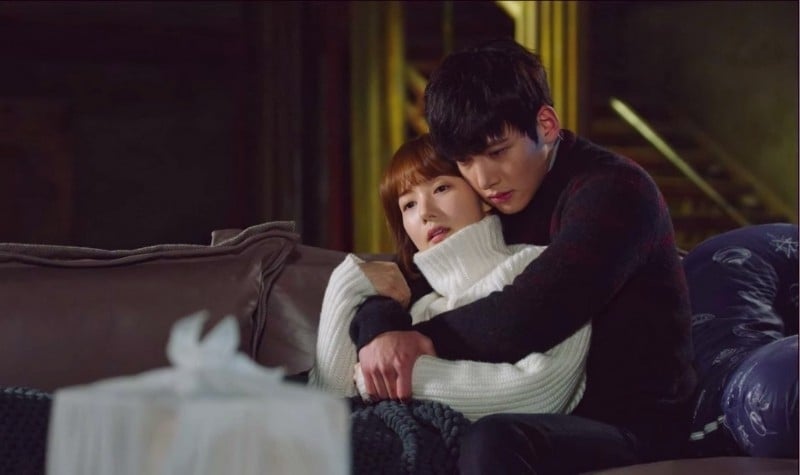
Healer | Image credit: Netflix
Don’t you just love it when handsome leading men suddenly fret over their love interests? It doesn’t matter if it’s a bullet or a headache; when something harms their leading lady, it’s enough to pierce through their stone-cold composure and reveal that they secretly cared all along. When this happens, they’ll usually ask, “Gwenchana?” (“Are you okay?”)
This takes the same meaning of gwenchana (“it’s okay,” “it’s fine,” “I’m alright”), while voicing it as a question. Afterwards, it’s sometimes followed by the other person responding, “Why? Are you worried about me?”
Naturally, the other person will get flustered and try to deny it. But we all know the real score. It’s these little moments and subtle romantic phrases in K-dramas that give us giddy feelings, even without the characters saying anything big.
2. Opparang gachi isseoseo haengbokhae – “I’m happy because I’m with you”
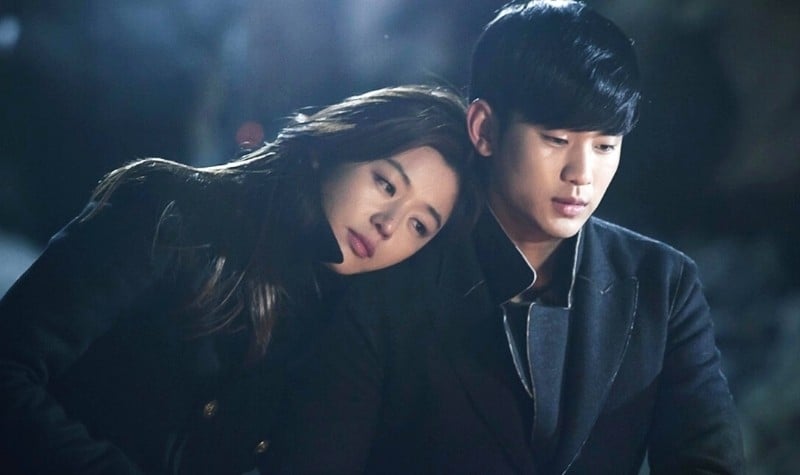
My Love From the Star | Image credit: Netflix
One character saying “haengbokhae” (“I’m happy”) might seem like nothing, but K-drama fans will recognise this phrase’s suggested meaning.
Typically when a character in a romantic K-drama says “haengbokhae” (“I’m happy”), it’s because of the person standing right beside them. Maybe the characters know their time is running out; and now, they just want to let their loved one know how grateful they are to have met them. In this bittersweet scenario, they might say, “Opparang gachi isseoseo haengbokhae” (“I’m happy because I’m with you”). Excuse us, while we scream our feelings into our pillow.
3. Joahae – “I like you”
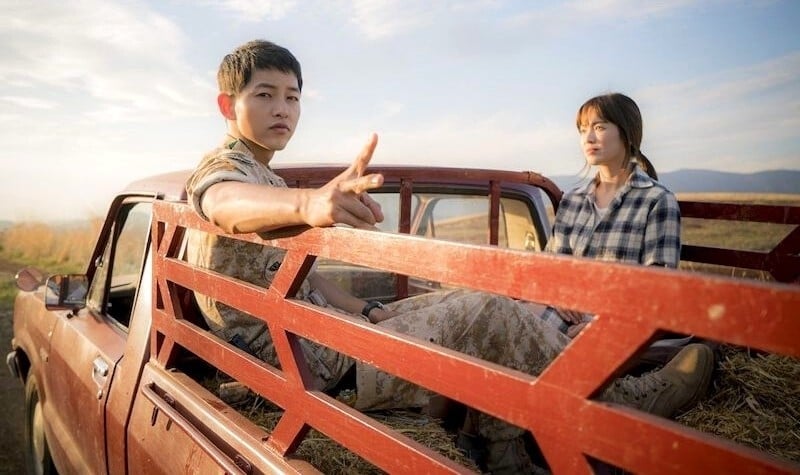
Descendants of the Sun | Image credit: Netflix
As time goes on, the protagonists start to see each other in a different light. Sparks fly, infatuation simmers into something deeper. Then halfway through the series, you hear the line you’ve been waiting for. “Joahae” is used by the characters to say, “I like you.”
When it comes to confessions between the characters, this admission is when the relationship begins. By the time the protagonists admit their feelings for each other, you know you’re getting to the good stuff. From there, it’s full steam ahead!
“Joahae” is the informal way in Korean of telling someone you like them. If you’re talking to people who are older than you and not that close to you, you can add “yo” at the end to show respect. Thus, you say, “joahaeyo.”
4. Mianhae – “I’m sorry”
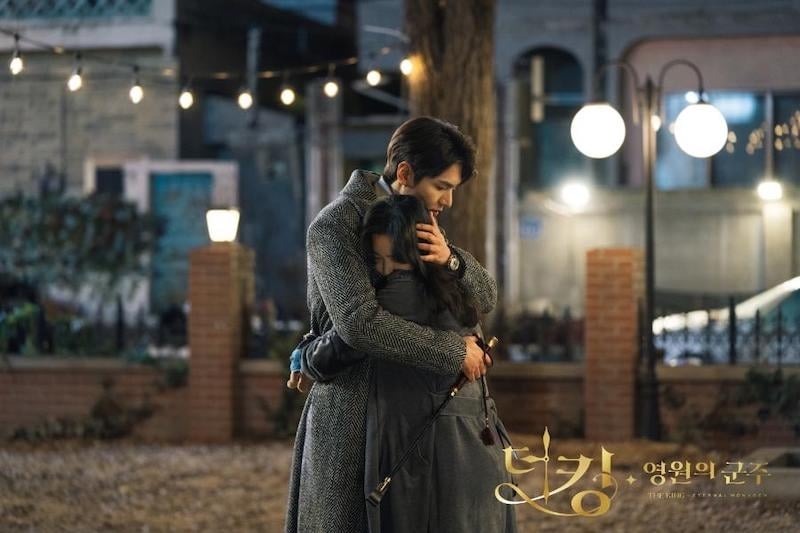
The King: Eternal Monarch | Image credit: Netflix
While not romantic in nature, “mianhae” (“I’m sorry”) is one of the Korean phrases that gets uttered all the time in K-dramas, where tearful goodbyes and misunderstandings happen frequently between the leads. Many times, this is accompanied by an embrace. Maybe one of them has to sacrifice themselves to confront the villain. Or maybe they believe they’re about to disappear for a long time, and they don’t know when they’ll be back.
5. Gajima – “Don’t go”
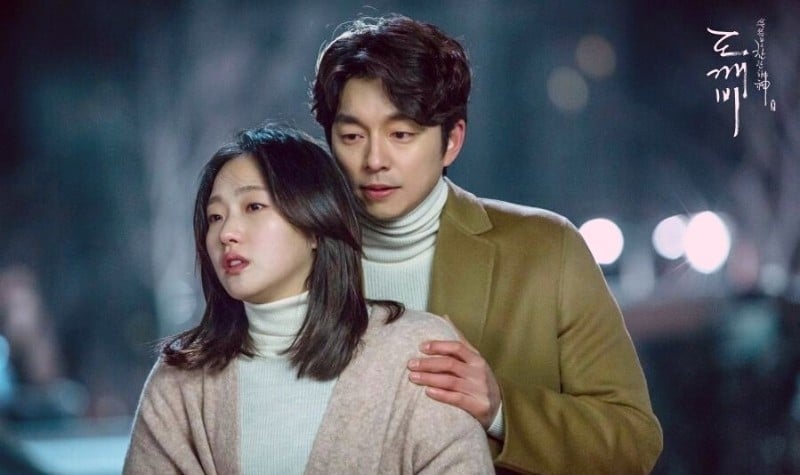
Guardian: The Lonely and Great God | Image credit: Netflix
If the lovers are about to be separated from each other, you can expect a heart-wrenching scene where one of the leads hugs their partner from behind and begs them not to leave. Fearing they might not see each other again, one of them might even say, “Gajima” (“Don’t go”). Just like that, we’re clutching the edge of our seats!
6. Bogoshipeo – “I miss you”
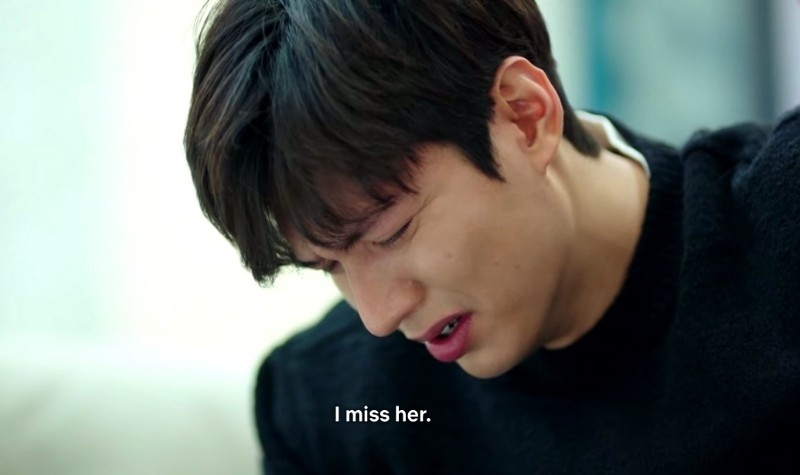
The Legend of the Blue Sea | Image credit: Viu
Spending time and distance apart can be tough for K-drama couples. One of the most romantic Korean phrases that the characters might say is “bogoshipeo.” Simply put, this means “I miss you.”
Another way to express this sentiment is “bogoshipda,” which translates to “I want to see you.” When the lovers cannot see each other because they’ve been separated, “bogoshipda” is what they might say while pining for each other from afar.
If you’re just a fan of K-pop music, you’ve probably heard “I miss you” in quite a number of Korean songs as well. In the lyrics of BTS’ Spring Day, for example, the song begins with “bogoshipda.” Ah, the things you can learn from being a fan!
7. Yaksokhae – “I promise”
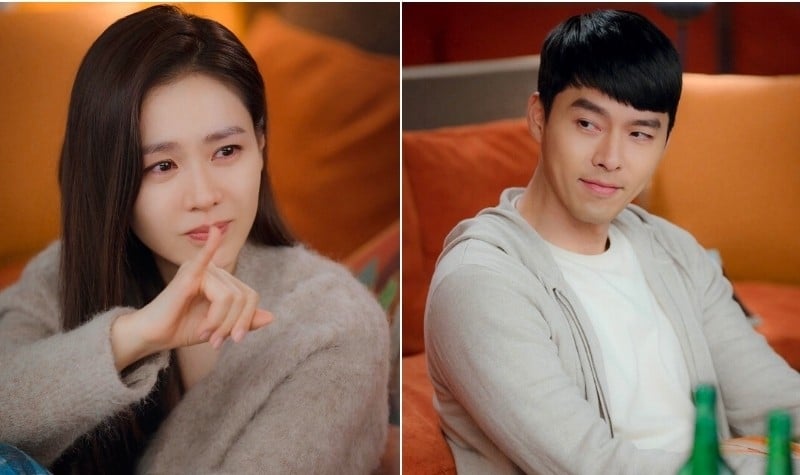
Crash Landing on You | Image credit: Netflix
“Yaksok” translates to “promise” in English. When K-drama characters want to make a promise or a vow to each other, they might say, “Yaksokhae,” which means “I promise.”
Remember that scene from Crash Landing on You? Koreans actually have many adorable ways of doing a pinky swear! To copy the one that Yoon Se-ri (Son Ye-jin) and Ri Jeong-hyeok (Hyun Bin) did, you can start by making the “call me” sign with one hand. Lock your pinky fingers, then press your thumbs together. One pinky promise, stamped and sealed!
8. Ramyeon meokgo gallae? – “Do you want to have ramen with me?”
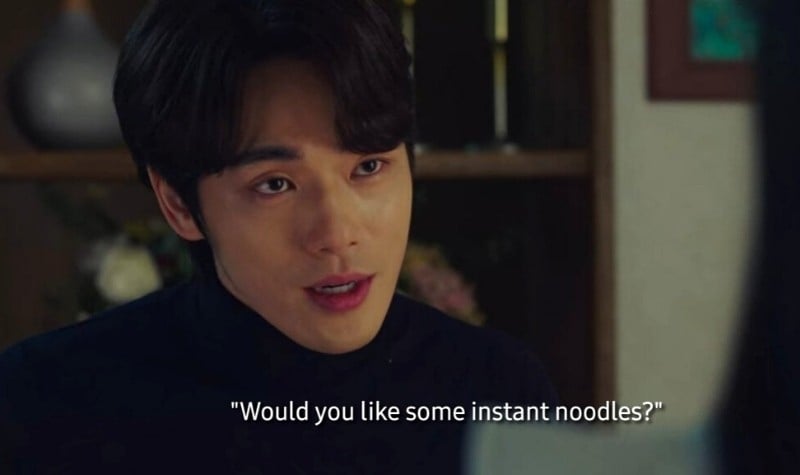
Crash Landing on You | Image credit: Netflix
Ramyeon is one of the most popular Korean dishes to appear in K-dramas. But it also suggests, well, more sharing noodles.
To be fair, most of the time, the characters really are just eating noodles in their apartments. But as the best friend or sidekick of the show always tells the protagonist: You can’t just ask anyone to come over for ramyeon!
Inviting someone over for ramyeon has a double meaning, kind of like South Korea’s equivalent of “Netflix and Chill.” See, a character might want to welcome their love interest to their apartment without seeming too forward, so they use the breezy pick-up line: “Ramyeon meokgo gallae?” (“Do you want to have ramen with me?”)
9. Saranghae – “I love you”
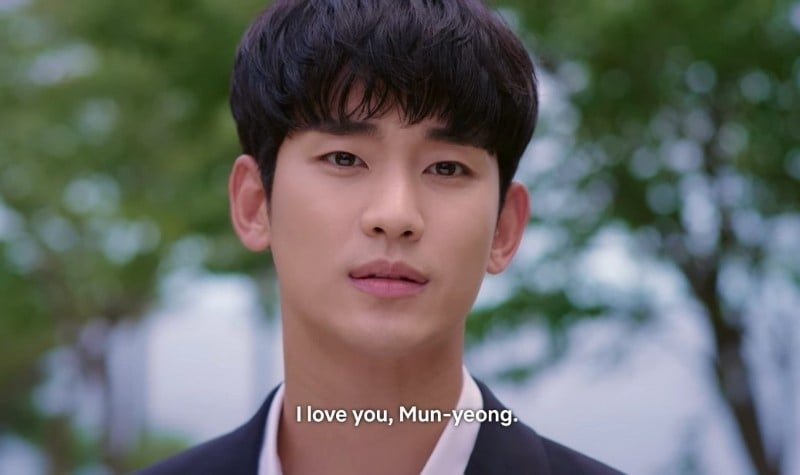
It’s Okay to Not Be Okay | Image credit: Netflix
No romantic Korean drama can end without this phrase. Even the briefest mention of “saranghae” can make anyone stop in their tracks and set viewers’ hearts aflutter. Somehow, an honest declaration of love never gets too old or too cheesy to be left out.
After watching everything the characters have to go through, it feels rewarding to watch them finally muster the courage to say, “I love you.” Luckily, you can always trust K-dramas to make these romantic moments feel earned.
“Saranghae” is what you might say to people who are your age, as it’s the more informal way of saying “I love you.” But if you want to say it in a more formal way, you can add “yo” at the end for “saranghaeyo.”
10. Narang gyeolhonhae jullae? – “Will you marry me?”
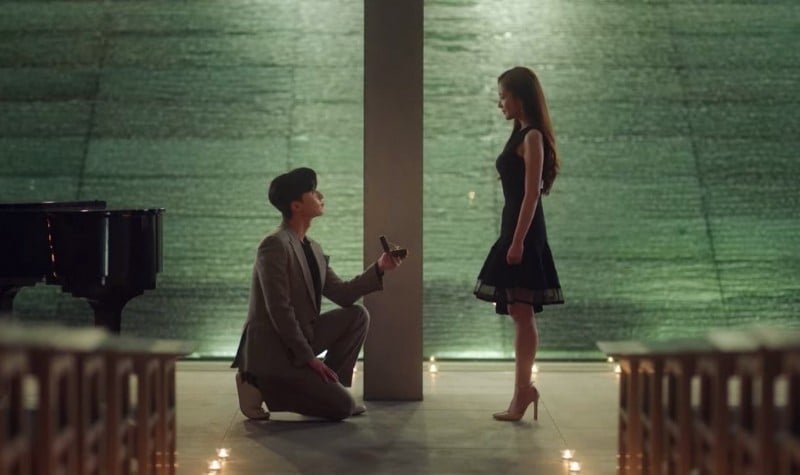
What’s Wrong With Secretary Kim? | Image credit: Netflix
From What’s Wrong With Secretary Kim? to Goblin, we’ve witnessed plenty of beautiful marriage proposals in K-dramas over the years. Not every lead couple in romantic K-dramas will get to pop the big question: “Narang gyeolhonhae jullae?” (“Will you marry me?”) But boy, when they do, they certainly know how to pull out all the stops. Between the magical lights and real-life fairytale quality of these moments, K-dramas know how to make viewers swoon!
Also read: 15 Easy Korean Words & Phrases K-Drama Fans Should Know [PART TWO]!
Got your own line to add? How many romantic K-dramas can you name-drop that use the Korean phrases we mentioned above?
We’re having a lot of fun bringing you the latest instalments of our Korean language series — and we hope you enjoy reading them, too!
Featured image credit: The Legend of the Blue Sea | Viu





